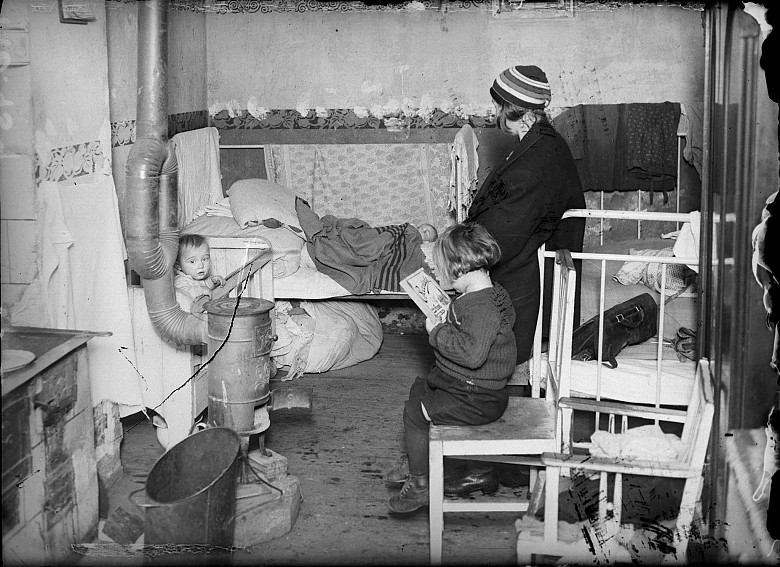The new trend: the nuclear family as luxury commodity
The Biedermeier family ideal of the ‘nuclear family’ spread to all levels of society. Nothing stood in the way of domestic bliss…
It was only with the advance of industrialization towards the end of the nineteenth century that the families of peasants and labourers could begin to approach this middle-class family ideal. The change in the conditions of production (such as the use of machinery in agriculture) made large numbers of agricultural workers redundant, so that many farmers and smallholders were only able, or indeed were obliged, to manage their holdings with the labour of their own families. Conversely, the rural labour market encountered competition from the employment opportunities in the cities and industrial areas which many found more attractive. In the traditional farming communities and in the artisan trades the biological family lived and worked in their household together with their servants or journeymen. In contrast to the farmers’ and artisans’ families, factory workers had separate places for work and accommodation. The small apartments they occupied, often consisting only of one small room with a kitchen, allowed them almost no individual free space. Wages were frequently insufficient to cover the rent, with the result that many labourers’ families had to rely on income from sub-tenants known as Bettgeher (‘bed-tenants’), who hired a bed to sleep in while its usual occupant was out at work.
Those working-class families who occupied an apartment of their own could at least begin to approach the middle-class family ideal of the nuclear family in its own home. It was only the increase in real incomes towards the end of the nineteenth century that made it possible for many working families to pay their rent without the additional income from ‘bed-tenants’. For the first time, the total income of the father, mother and children was sufficient to provide them with their own four walls. Only ten to twenty per cent of working-class families were able to make ends meet without additional earnings from the wives, whose remuneration, incidentally, amounted to only a fraction of a man’s income for the same work.














